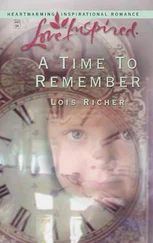Alexander Todd - A Time to Remember
Здесь есть возможность читать онлайн «Alexander Todd - A Time to Remember» весь текст электронной книги совершенно бесплатно (целиком полную версию без сокращений). В некоторых случаях можно слушать аудио, скачать через торрент в формате fb2 и присутствует краткое содержание. Город: Cambridge, Год выпуска: 1983, ISBN: 1983, Издательство: Cambridge University Press, Жанр: Химия, Биографии и Мемуары, на английском языке. Описание произведения, (предисловие) а так же отзывы посетителей доступны на портале библиотеки ЛибКат.
- Название:A Time to Remember
- Автор:
- Издательство:Cambridge University Press
- Жанр:
- Год:1983
- Город:Cambridge
- ISBN:0 521 25593 7
- Рейтинг книги:3 / 5. Голосов: 1
-
Избранное:Добавить в избранное
- Отзывы:
-
Ваша оценка:
- 60
- 1
- 2
- 3
- 4
- 5
A Time to Remember: краткое содержание, описание и аннотация
Предлагаем к чтению аннотацию, описание, краткое содержание или предисловие (зависит от того, что написал сам автор книги «A Time to Remember»). Если вы не нашли необходимую информацию о книге — напишите в комментариях, мы постараемся отыскать её.
A Time to Remember — читать онлайн бесплатно полную книгу (весь текст) целиком
Ниже представлен текст книги, разбитый по страницам. Система сохранения места последней прочитанной страницы, позволяет с удобством читать онлайн бесплатно книгу «A Time to Remember», без необходимости каждый раз заново искать на чём Вы остановились. Поставьте закладку, и сможете в любой момент перейти на страницу, на которой закончили чтение.
Интервал:
Закладка:
On most of the trips made in the sixties to chemical conferences, Bob Woodward and I travelled together and our friendship became even closer. Indeed, there were times when our appearance together at symposia made us feel rather like a travelling vaudeville act. But the highlight of the decade was when Bob (in my view belatedly) was awarded the Nobel Prize for chemistry in 1965, and I was able to see him receive the prize in Stockholm.
The 1970 Indian Science Congress was held at Kharagpur near Calcutta, and I was invited to be present at the Opening Ceremony performed by the Prime Minister, Mrs Gandhi, on 3 January, and to deliver a plenary lecture. By the time January was approaching I found myself with other commitments added to this - the dedication of the new laboratories of the National Drug Research Institute at Lucknow, and a mass of lectures and other engagements in Delhi and Bombay. My wife and I left London by air on 1 January but, on arriving over Dum-Dum airport at Calcutta the following morning, fog was so thick that the aircraft, despite cruising around for an hour or so, could not land. As fuel was beginning to run low, the pilot decided he must carry on. The end result was that we were deposited in Hong Kong, had some four hours in a hotel there, and flew back to Calcutta arriving in the small hours of 3 January. After a further two or three hours we set off again by road to Kharagpur, which we reached just in time for the opening ceremony. It is fortunate that I was seated behind Mrs Gandhi, for I am afraid I slept through most of her address, and indeed I was pretty whacked by the time I got through the formal lunch and delivered my own lecture. On the following day I had to attend the Congress meetings until we were taken off to Calcutta again to get a plane to Lucknow. As luck would have it, engine trouble delayed the plane and we arrived late at night in Lucknow only to be on parade again at 9 a.m. the next morning to dedicate the new laboratories of the Central Drug Research Institute, make a speech, have lunch, listen to the young men giving me an account of their research, and board the plane for Delhi. The pace was much the same in Delhi, and after that in Bombay where we spent about a week. I remember getting close to the point of collapse after about two days there; I spent an afternoon in my hotel room feeling very unwell and more exhausted than I have ever felt before or since; but I recovered, and completed my engagements according to plan.
At the time, I put down my feelings in Bombay simply to exhaustion, but now I am not so sure. Early in March 1970 I was struck down by a severe heart attack in Cambridge. Fortunately I was taken at once to Addenbrooke's Hospital and really well looked after by my cardiologist, Dr H. A. Fleming, and the hospital staff, all of whom I knew well since I had been Chairman of Governors of the United Cambridge Hospitals since 1968. After emerging from intensive care, I was told I must stay in hospital and remain effectively incommunicado for about eight weeks. My diary was fortunately relatively empty at that time. My next major engagement was the Commencement Address at the University of Michigan and that could be, and was, easily postponed until 1971. Thereafter I was due at Durham in September 1970 as President of the British Association for the Advancement of Science, but I reckoned I would be fit in plenty of time to fulfil that one. The big problem appeared to be how to pass the time, since I was told quite firmly that I must on no account work. I didn't see how I was going to survive on detective novels and the radio, so I cudgelled my brains for an answer. I found it partly as a result of some comments by my friend C. P. (Lord) Snow - I decided to learn Chinese as a means of keeping my mind occupied. So I sent down to Heffers bookshop for such books as they had on the Mandarin dialect, and sent word to Henry Chan, a Chinese research student in my laboratory, to come along to see me to discuss the Chinese language. I am afraid it caused him quite a bit of concern, for the message was delivered to him 'out of the blue' on 1 April; but he did come along, helped me select the best texts, and I got under way. I found the exercise very rewarding. Chinese proved a very interesting language and, even if I did not come out of hospital a Mandarin scholar, I had learnt the rudiments sufficiently to enable me to build on them subsequently when time permitted. I fear, however, that I was too old to have any real hope of learning the 2000 or so characters necessary for reading even a newspaper. Still, with the increasing use of pinyin transliteration in modern China, the situation for the foreigner is slowly improving.
When I emerged from hospital and was fully fit again I decided that it would be wise to cut down on my commitments and take things a little more easily. I began by shedding a number of committees, and cut down severely on public lecture commitments. It also seemed that I now had the chance to put into practice what I had often told my family I would do once I passed the age of sixty, viz. retire from the headship of the University Chemical Laboratory. I had, during my professional life, seen great departments such as Cambridge, Manchester and Oxford badly scarred and well-nigh destroyed by having professors who stayed on after they had ceased to be effective, and I had always vowed I would not make that mistake in the school I had built up in Cambridge. I had indeed already made a move by importing, only nine months before my illness, a young and brilliant professor in A. R. Battersby (who had indeed been an undergraduate member of my school in Manchester during the war period). The way was thus clear for me to show that I could practise what I preached, and I gave notice that I would resign my chair and take Emeritus status on 30 September 1971. I fulfilled my obligation as President of the British Association for the Advancement of Science in 1970, and delivered a fairly hard-hitting Presidential Address entitled' A Time to Think' in Durham Cathedral (the only place in Durham large enough to accommodate the audience). The address, in which I set out at some length my criticism of the post-Robbins expansion for our universities, did not please the political left; it was leaked beforehand, and the gaiety of the occasion was increased by a demonstration in the Cathedral Yard by a group of left-wing adherents of a body called (I think) the 'Society for Social Responsibility in Science', all attired in white sheets and affecting to be victims of chemical and biological warfare.' A Time to Think' was published in Advancement of Science 1970, 27, 70; on re-reading it after ten years I find little in it that is not equally relevant today. For this reason, and because it sets out my views on a number of topics of wide interest and importance, I have decided to reproduce it in full as Appendix I (p. 205) to these memoirs.
I kept my word and formally resigned my Cambridge chair in 1971. To mark my retirement the University Chemical Laboratory held a large dinner - so large, indeed, was the guest list that it had to be held in the Hall of King's College. I was deeply moved to find included among the guests not only former colleagues and students from the Manchester and Cambridge days, but also old friends from my student days in Glasgow, Frankfurt, and Oxford, as well as Sir Robert Robinson and R. B. Woodward. It was a tremendous party, and one notable consequence of it was the creation of the Toddlers' Club, an exclusive dining club of eighteen members which I have already described (p. 71).
Even before I resigned my chair it was clear that my life would not be very much easier as a result. Following the death of Sir Frank Lee in the spring of 1971 I came under heavy pressure from the Vice-Chancellor and the University Treasurer to succeed Sir Frank as chairman of the Syndics of Cambridge University Press. They were most insistent and, particularly as I had refused to allow myself to be nominated for the Vice-Chancellorship, I felt I had to accept.
Читать дальшеИнтервал:
Закладка:
Похожие книги на «A Time to Remember»
Представляем Вашему вниманию похожие книги на «A Time to Remember» списком для выбора. Мы отобрали схожую по названию и смыслу литературу в надежде предоставить читателям больше вариантов отыскать новые, интересные, ещё непрочитанные произведения.
Обсуждение, отзывы о книге «A Time to Remember» и просто собственные мнения читателей. Оставьте ваши комментарии, напишите, что Вы думаете о произведении, его смысле или главных героях. Укажите что конкретно понравилось, а что нет, и почему Вы так считаете.










